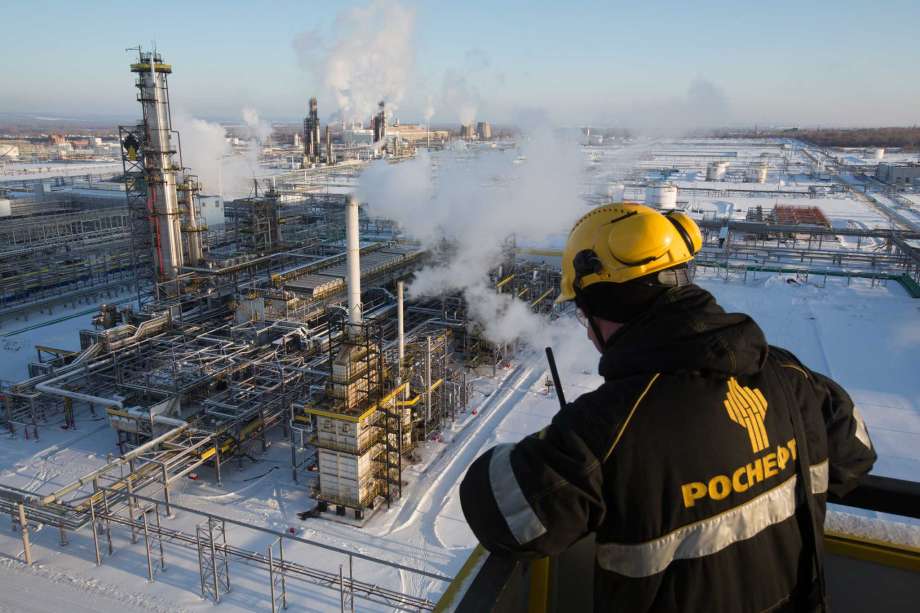Russia appears committed to the oil production cuts it negotiated with the world’s top oil producers in April. May’s production levels have fallen to 8.75 million barrels per day, closing in on the 8.5 million barrels per day to which the nation has agreed to limit itself.
Russia is the largest oil and gas producer in the world and has historically resisted cuts to its production, even when others have conceded.
Many have accused the country of benefiting from OPEC price-control measures through painful cuts without contributing, but the COVID-19-influenced oil price crash appears to be changing opinions in Moscow.
Historic cut
Russian domestic oil producers are working hard to reach the targeted production cut very soon, according to a Reuters interview with Russian Deputy Energy Minister Pavel Sorokin. Thanks to the Russian government’s close links with its oil producers, the cut was able to materialize quickly, according to Sorokin. Russia does not have to negotiate with supermajors, like Iraq has to, in order to realize the cuts.
Russian oil production has remained fairly steady at around 10 million barrels per day since August 2009, even though its reserves in Siberia are slowly running out.
The development of new fields and the increasing prominence of natural gas as a less-polluting “transition fuel” has ensured a few spikes and dips in Russian oil production.
Negative prices in Siberia
Export prices for Russia’s Urals oil dipped into the negatives at the start of April because of a rise in shipping costs and taxes during a global supply glut. While Russian officials had claimed the industry was prepared to face low oil prices for years if necessary, the negative prices appeared to be one step too far.
For years Russia maintained that it could not close wells in its Arctic North, because wells would freeze shut, but it is now rapidly doing exactly that. Although it is much more difficult to close wells in Russia’s North, where temperatures can fall to -25 degrees Celsius in January, the Russians are finally taking the chance.
Russo-Saudi gamble
Egyptian billionaire-investor Naguib Sawiris told CNBC International that prices were logically dropping because of decreased demand during the pandemic. Sawiris did admit that he had not expected the price of oil to drop by such drastic levels. This happened, he stated, because “the Russians and Saudis decided to go head-to-head to kill the shale gas industry in America.”
Sawiris believes the Russo-Saudi gamble, although currently painful, will pay off in the long term. “By killing the competitor the oil price will rise beyond 50 or 60 dollars,” he stated, highlighting the long-term perspective of Russia and Saudia Arabia’s strategy.
“I believe within 18-months, oil will hit $100,” Sawiris confidently told a flummoxed CNBC anchor. “Banks will be reluctant to refinance a collapsed US shale gas industry,” Sawiris said.
The billionaire investor does not think that the current economic trouble means Moscow and Riyadh overplayed their hand, calling the Russo-Saidi gamble a “smart move in the long term.”
Smaller US producers resist production cut
There is increasing evidence that the strategy devised by Russia and Saudi Arabia is working: Smaller US producers are resisting cuts, often because of their debt. While US oil giant Exxonmobil has reluctantly closed some of its wells in the US Permian Basin, where much of US oil is traditionally produced, smaller producers have decided not to implement shared cuts.
Smaller US producers are affiliated through organizations such the Railroad Commission of Texas (RRC), where cuts would have to be negotiated on a state-by-state basis. The RRC on May 5 failed to pass a motion to reduce local oil output by 20%, instead stating it will “side with the free market.”
But it is America’s “free markets” that could prove the largest threat to its industry. As oil producers from different states refuse to be the first to cut production, each state forces the others to continue unsustainable production while small producers build ever greater debts.
US regulators are unwilling to cut production, and local producers are refusing to voluntarily contribute. The unwillingness of US shale producers to make painful cuts, such as those in Russia, could result in a victory for Russia and Saudi Arabia in the ongoing war for long-term market share.
As long as individual US producers continue to only look out for themselves, the Russo-Saudi ploy is going exactly according to plan.

